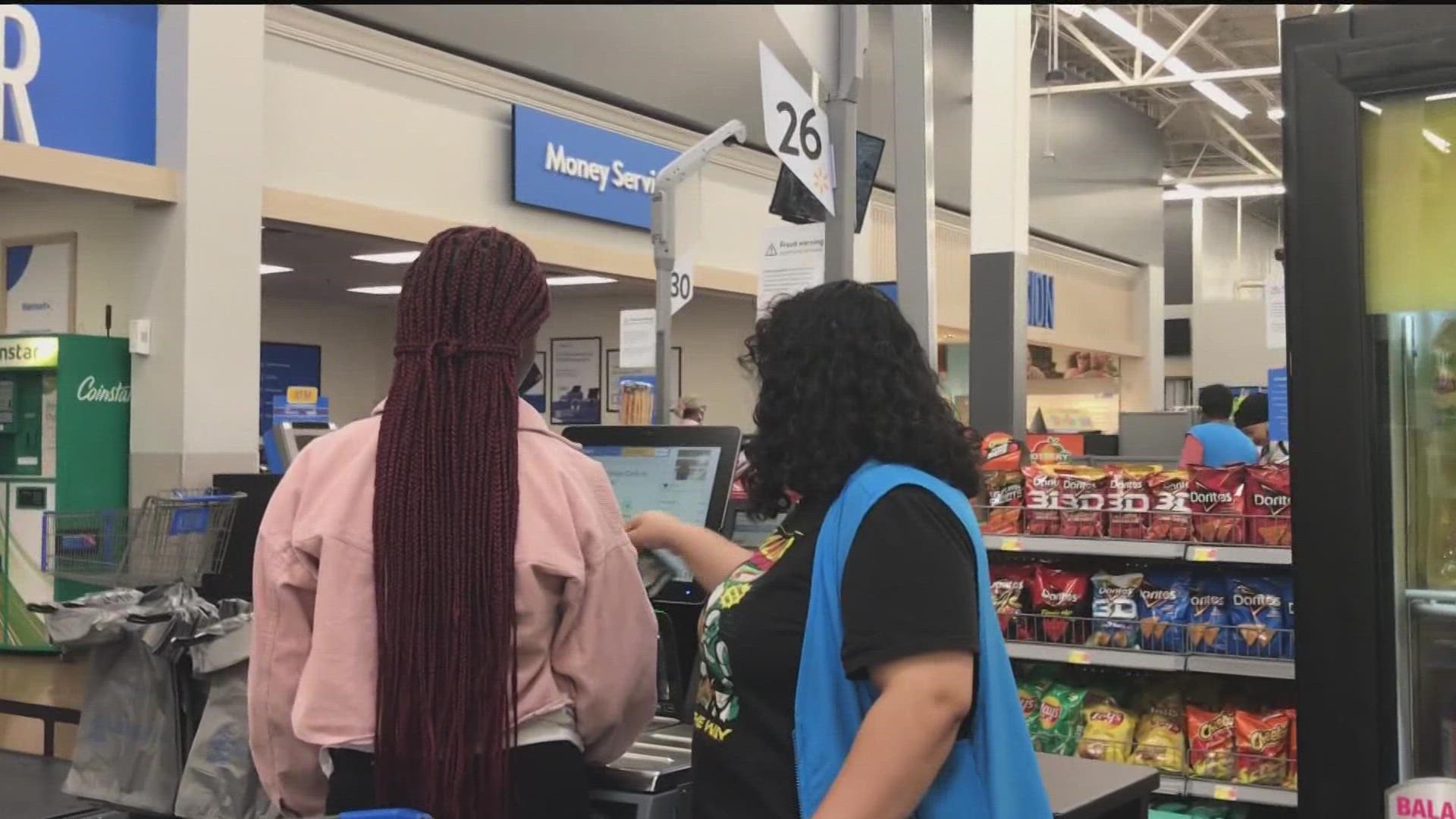ATLANTA — An employee for the Division of Family and Children Services is offering new insight into the problems that caused hundreds of people to not receive their SNAP benefits on time last month.
It left many of those people in a desperate situation. The Georgia Department of Human Services (DHS) told us before that the issue was tied to a worker shortage that caused delays in processing benefit renewals.
The DFCS worker, who asked to remain anonymous out of fear of losing her job, explained that’s just part of the problem.
“The biggest problem is the turnover," she said. "The turnover is very, very high. People will start training and stop, I don't think that they knew what they were getting into. Neither did I.”
That realization made her want to speak up anonymously.
“There is a very high influx of new applications and renewals being done," she explained. "There's there's a lot of people that are applying for food stamps."
The worker said that internally, expectations are high, while staffing, pay, and morale are all low for Economic Support Specialists (ESS) like her.
“I’ve had to seek outside help, because I realized that I suffered with anxiety that I’ve never suffered from. When I get home – when I get off, I am restless, and I’ve never been restless from any job," she said while holding back tears. "I enjoy working with my clients but the stress and the pressure – the unnecessary pressure is a problem.”
11Alive reached out to DHS about her concerns.
They confirmed that during State Fiscal Year (SFY) 2022, turnover for her position (ESS) was at 26%. It adds that's an increase from the previous year.
It attributed it to “The Great Resignation” and the COVID-19 pandemic, but said turnover is currently trending down at 7.5%.
Here is what DHS had to say in relation to that specific claim made by the worker:
"In SFY 2022, turnover for Economic Support Specialist (ESS) positions was 26%, which was up from the previous year. This is a direct correlation to the timeframe of the Great Resignation period, exacerbated by COVID. Turnover for ESS workers in SFY 2023 is currently trending down at 7.5%, compared to 10.8% at the same time last year."
DHS adds that it will be hiring nearly 200 specialists in about one month.
"If there was more retention of employees, the workload might not be so high," the worker added.
She told 11Alive that she currently handles more than 200 cases a month, but believes that number should be closer to 50.
DHS noted that specialists are expected to complete an average of 10 tasks per day, but in October, the average number hovered closer to 13.
Here's what it had to say about this:
"'Caseloads' are not representative of the actual work expected of or completed by ESS workers on any given day, month, or week. ESS workers have tasks assigned to them via a dashboard, with the expectation that they will complete – on average – 10 tasks per day. During the month of October, the average number of tasks completed per ESS worker each day hovered between 11-13 tasks."
“Over time is limited to six hours," the worker said. "However, if you are willing to work the overtime, you still have a hard time accomplishing everything because it is so much."
The employee added that when a case worker falls behind, it can result in verbal or written reprimands. She said when action isn't taken, workers decide to resign.
“I think that if you would re-evaluate how everything is designed. That would keep people on because it's very obvious public servants do not work for money," she said.
In turn, Commissioner Candice Broce with DHS said:
"We have a formal grievance procedure that employees are encouraged to use if there is an issue or complaint. We have zero tolerance for workplace retaliation, and if any employee fears retaliation, they can escalate their concern directly to our chief of staff or deputy chief of staff. Alternatively, an employee can file a complaint using the Office of Inspector General’s online complaint form, linked here."
The agency stated it has also put several incentives in place: from allowing workers to be in the office just twice a month, to a program allowing them, and their families, to connect with counselors to discuss concerns.
"Trying to resource and equip our staff to do their jobs serving customers is paramount; whether asking supervisors to carry caseloads for stipends or hiring more team members, all contexts are considered. Whenever there are instances of employees out on leave and/or turnover, staffing is challenged. However, we have put in place several employee incentives such as telework schedules (in the office 2x per month), temporary salary supplements, paid voluntary overtime, and the Employee Assistance Program (EAP) which is available 24 hours a day, seven days a week, 365 days a year to help employees connect with a counselor either in-person or virtually to discuss concerns. Household members and dependent children are also eligible for this support."

